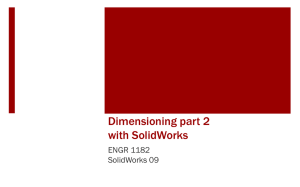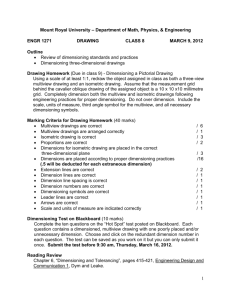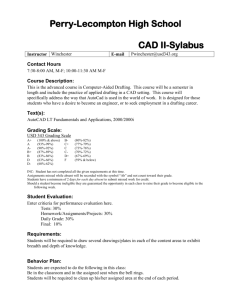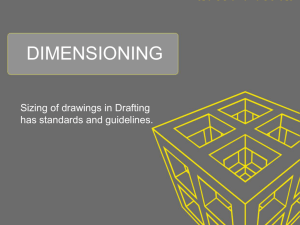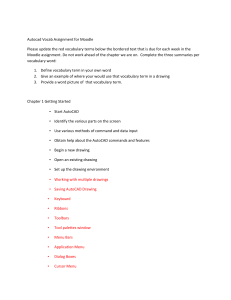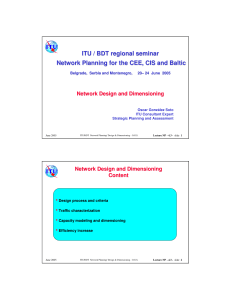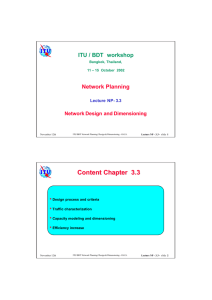Dimensioning
advertisement
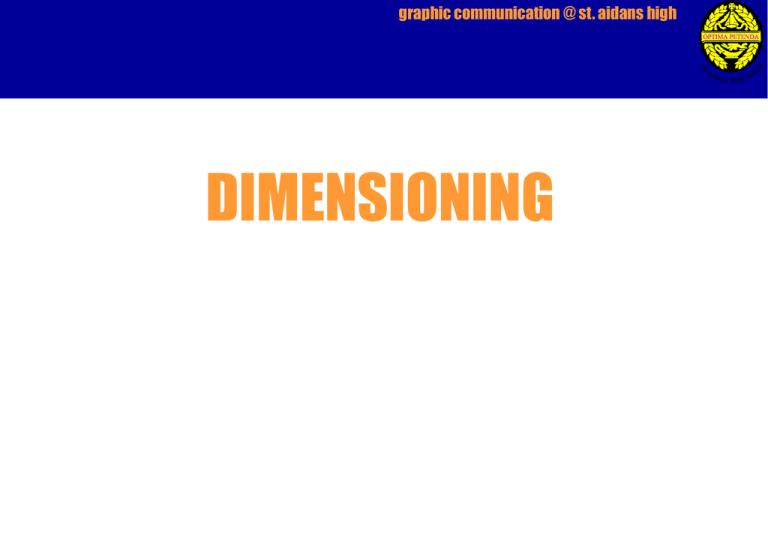
graphic communication @ st. aidans high DIMENSIONING graphic communication @ st. aidans high THE BASICS OF DIMENSIONING When putting sizes (dimensions) onto a drawing, it is important that they are put on correctly. You will find that there are many wrong ways to do it and usually only one right way for each situation. When you give it some thought, it is quite obvious why everyone has to follow the same rules for dimensioning. That way, all drawings can be more easily followed and understood no matter who drew them. We will look at a few of the most common situations in turn but first let’s look at the basic method of adding the appropriate information to any given dimension . . . Neat, slim, filled arrowheads number sitting just above the line You should keep these five features in mind every time you add any dimension to a drawing, regardless of the situation. We will look at a few specific problems on the next page. graphic communication @ st. aidans high PARALLEL DIMENSIONING Parallel dimensioning consists of several dimensions all originating from the same projection line. CHAIN DIMENSIONING Chain dimensioning can be neater and take up less space. Once you have learned about tolerances though, you will see that this method of dimensioning can cause problems relating to accumulated error. graphic communication @ st. aidans high DIMENSIONING CIRCLES There are several conventions used for dimensioning circles: (a) shows two common methods of dimensioning a circle. One method dimensions the circle between two lines projected from two diametrically opposite points. The second method dimensions the circle internally. The first method using projection lines is the least used method but the choice is up to you as to which you use. (b) is used when the circle is too small for the dimension to be easily read if it was placed inside the circle. A leader line is used to display the dimension. (c) the final method is to dimension the circle from outside the circle using an arrow which points directly towards the centre of the circle. graphic communication @ st. aidans high DIMENSIONING RADII All radial dimensions are proceeded by the capital R. All dimension arrows and lines should be drawn perpendicular to the radius so that the line passes through the centre of the arc. All dimensions should only have one arrowhead which should point to the line being dimensioned. There are two methods for dimensioning radii. (a) shows a radius dimensioned with the centre of the radius located on the drawing. (b) shows how to dimension radii which do not need their centres locating. graphic communication @ st. aidans high DIMENSIONING SMALL FEATURES When dimensioning small features, placing the dimension arrow between projection lines may create a drawing which is difficult to read. In order to clarify dimensions on small features any of the four methods above can be used. LETTERING All notes and dimensions should be clear and easy to read. In general all notes should be written in capital letters to aid legibility. All lettering should be of the same size and preferably no smaller than 3mm and no larger than 5mm. An example typeface is shown above. graphic communication @ st. aidans high DIMENSIONING finished back to menu
